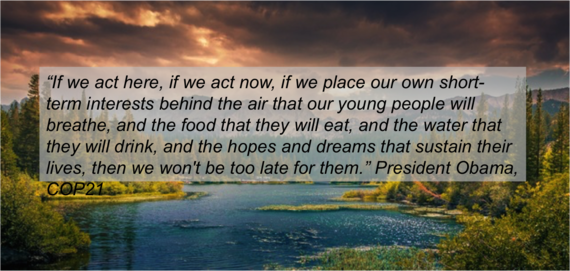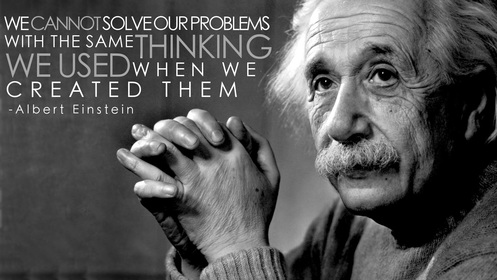
As I follow the talks at COP21 in Paris, I feel our urgent need for major action. I find myself asking:
What will catalyze such a profound shift in our priorities that our policies and laws reflect rather enforce a healthier, more sustainable relationship with our environment? How do we reach a place where a critical mass of global citizens prioritize our planet?
Change is not always easy
Starting in my mid-twenties, I made a deliberate choice to work on socially and environmentally conscious initiatives that protect and uplift, rather than exploit, the planet and people. I've had the privilege of being influenced and mentored by incredible leaders in impact investment, systems thinking and community engagement. I've learned from and supported exciting projects, including advising a social and environmental Youth Corps in Haiti, serving as the youngest member of a Mayor-appointed, and being contracted to investigate global best practices for sustainable solutions.
Through these experiences and mentors, I was able to have some influence on policies, projects, and community choices towards greater environmental responsibility. Over the years, however, I became frustrated with the pace of change. Engaging stakeholders and negotiating different perspectives requires reframing things again and again, trying to connect to people's self-interests, worldview and values. I was left feeling: Why do we have to build all these constructs to convince people to care about the planet?
We cannot change a problem from the level of the problem
My successes and struggles have brought me to this simple truth - we can't change the situation we're in until we shift the mindsets that got us here. How can we save something that we don't all value?
Take a moment to consider: "What is more important - a forest, or the mind that perceives the forest?"
Most of us know that forests are an incredibly valuable part of earth's ecosystem. However, a forest is only as important as the mind that perceives the forest. Looking at climate change from this lens, it begs the question: Will policy alone solve environment problems if we don't deeply perceive the inherent value of the environment? Will we be motivated to prioritize the environment unless it touches the things we feel belong to us: our homes, material comfort, and families?
Perhaps the most powerful action we can take is to expand our sense of belonging, so that we feel that nature belongs to us - beyond economic ownership. When we feel something belongs to us, that it's a part of us, we naturally and effortlessly take responsibility for it. If our communities and leaders felt a deep sense of connection with nature, perhaps responsibility for nature wouldn't need to be imposed on us, regulated, taxed, or monitored. Our choices and decisions would simply reflect that we care.
Effective change will require new kind of leadership
In a complex and dynamic world, leaders face demands, challenges and pressures that can overwhelm our ability to care and connect. Is it even possible to kindle and sustain in leaders vulnerability, sensitivity, and a sense of belonging with our planet and its inhabitants?
Long-time peace and environmental activist Emily Peck has taught Yesplus on campuses across the country, developing life and leadership skills for self-awareness, connection, and purpose among thousands of college students. "The ability to be present and cut through the noise and pressure are key skills needed to be effective leaders in today's complex world," she shares. "When we learn tools to connect with ourselves, it becomes easier to connect with others and the environment around us.
Programs like Yesplus are creating a wave of future leaders who can continually create dynamic solutions to complex challenges. These youth may be exactly the kind of leaders our planet will need in the coming decades. Yesplus, inspired by global humanitarian and spiritual leader, uses breathwork and meditation practices to restore and sustain students' inner clarity and peace. "From this peace, a deep sense of connection and belongingness with people and nature can dawn" says Emily.
While the challenges we face as a community are daunting, if we can operate from place of connection with ourselves, each other, and our planet, perhaps choosing positive environmental and social outcomes will become less about negotiation, and more about innovation. By investing in leaders when they are still exploring and discovering who they are and how they can serve the world, I hope we can shape the kind of future we seek.

